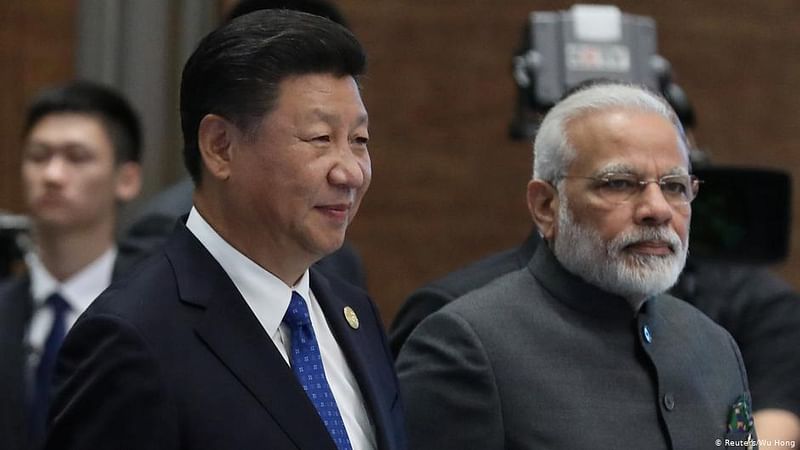Can India afford to ban Chinese products? Banning even Chinese apps have affected local employment and investment; and at a time when the pandemic has dealt a blow to Indian industries, any trade sanction on Chinese goods will create bottlenecks in the supply chain. Already delays caused by holding back consignments from China at ports and airports have the industrial bodies complaining.
An objective assessment will have to take into account the following facts:
- China’s GDP at $14 trillion is seven times higher than India in 2020.
- Chinese exports to India is valued at $77 billion and imports from India at $ 19 billion.
- Chinese imports account for 15% of India’s imports
- Chinese imports comprise electronic components, phatmaceutical raw materials, engineering goods and even needles of sewing machines.
Undeniably Indian consumers and Chinese investors and manufacturers had gained through trade. Chinese producers got a large market to sell and the Indian consumers got the benefit of lower prices. While consumer goods can be assembled in India by sourcing raw materials from countries other than China, this is likely to push up production costs by 15 to 20%.
A trade deficit or surplus reflects on the economy but is more complicated than the simplistic view most people take on social media. India, for example has a trade surplus with the US, the UK and the Netherlands. But this does not make Indian economy better than them. Not that trade deficits are to be welcomed. Persistent trade deficits reflect an incapacity to produce goods efficiently. And it raises the question of foreign exchange reserves to pay for the imports. India today has a $500 billion forex reserve to pay for imports over the next 12 months at current prices.
While trade sanctions are unlikely to affect the rich and the middle class, the more price sensitive Indians, the poor will get hurt more. Costlier or less efficient Indian TVs will hit the retailer as well as the poor. Trade sanctions can sometimes lead to smuggling of goods from third countries, resulting in a loss of revenue as well.
Several businesses in India import intermediate goods and raw materials from China, which, in turn, are used to create final goods — both for the domestic Indian market as well as the global market (as Indian exports). They include intermediate goods such as electrical machinery, parts of thermal power plants, fertilizers, optical and photographic measuring equipment, organic chemicals and so on.
A blanket ban on Chinese imports will hurt all these businesses at a time when they are already struggling to survive, apart from hitting India’s ability to produce finished goods.
Experts believe it is in India’s interest to gradually distance itself from China and pursue free trade agreements (FTAs) with US, Canada, UK and European Union member countries.
Some argue that India should slap higher import duties on Chinese goods or apply prohibitive tariffs on final goods. But by doing so, India could be accused of violating rules of the World Trade Organization. What is more, raising tariff for political reasons can hurt all trading partners in the long run and assure mutual destruction. Turning a border dispute into a trade war is unlikely to solve the border dispute, they point out. Moreover, reciprocal trade restrictions and barriers on Indian exports to China could also hurt Indian business.
The RSS, a section of the media and political parties want the Indian Government to invoke the security clause in the WTO Rules which would allow imposition of higher import tariff on Chinese imports. But such a measure is ill-timed with the Indian economy facing a crisis.
But India certainly looks poised to disallow Chinese vendors, already excluded from rollouts in major markets like the US, Australia and Japan, in the impending launch of 5G technology in the telecom sector on grounds of security. India had so far resisted pressure to order a ban but post-Ladakh, Chinese companies like Huawei and ZTE look less likely to be allowed a part in the rollout.
Improving domestic capacities and becoming globally competitive is the way forward. That alone can give India a higher share of global trade. But no country is fully self-reliant, depending on import of goods produced more efficiently in other countries.
India can also profitably leverage its agriculture to supply China what it needs. With the Chinese population ageing and its agriculture labour shifting to more remunerative occupations, it is going to create opportunities for India in the future.
































